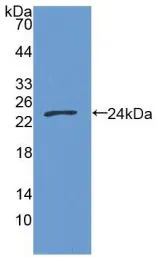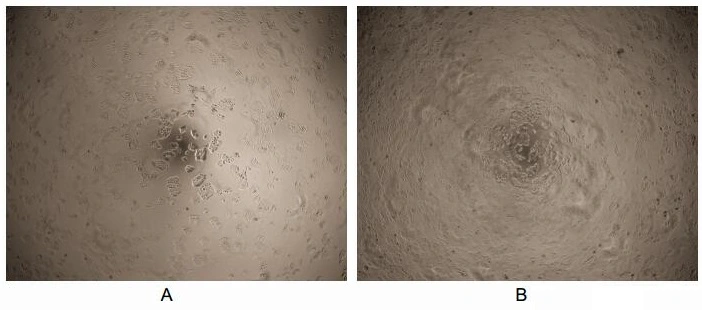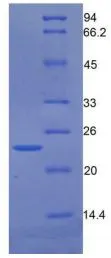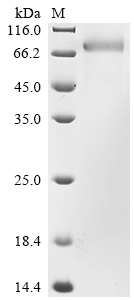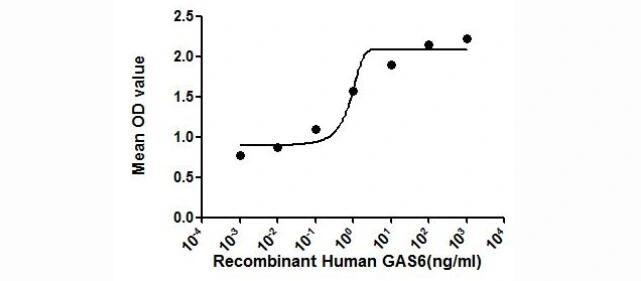
The dose effect curve of GTX00106-pro Human GAS6 protein (active) on DU145 cells. After incubation of Human GAS6 protein (active) for 72 hrs, cell proliferation was measured by Cell Counting Kit-8 (CCK-8).
Human GAS6 protein, His tag (active)
GTX00106-PRO
ApplicationsFunctional Assay
Product group Proteins / Signaling Molecules
Protein IDQ14393
Overview
- SupplierGeneTex
- Product NameHuman GAS6 protein, His tag (active)
- Delivery Days Customer9
- Application Supplier NoteGrowth arrest-specific 6, also known as GAS6, is a gamma-carboxyglutamic acid (Gla) domain-containing protein thought to be involved in the stimulation of cell proliferation. It has been reported that both PC-3 and DU 145 human prostate cancer cell lines are stimulated to proliferate by Gas6, however, this proliferative response strictly correlates with the expression of the Axl receptor, being higher in DU 145 cells. To test the proliferative effect of Gas6, DU 145 cells were seeded into triplicate wells of 96-well plates at a density of 2000 cells/well and allowed to attach overnight, then the medium was replaced with serum-free standard DMEM prior to the addition of various concentrations of GAS6. After incubated for 72h, cells were observed by inverted microscope and cell proliferation was measured by Cell Counting Kit-8 (CCK-8). Briefly, 10 microl of CCK-8 solution was added to each well of the plate, then measure the absorbance at 450nm using a microplate reader after incubating the plate for 1-4 hours at 37C. Cell proliferation of DU145 cells after incubation with GAS6 for 72h observed by inverted microscope.
- ApplicationsFunctional Assay
- CertificationResearch Use Only
- ConjugateUnconjugated
- Gene ID2621
- Target nameGAS6
- Target descriptiongrowth arrest specific 6
- Target synonymsAXLLG, AXSF, growth arrest-specific protein 6, AXL receptor tyrosine kinase ligand, AXL stimulatory factor
- Protein IDQ14393
- Protein NameGrowth arrest-specific protein 6
- Scientific DescriptionThis gene encodes a gamma-carboxyglutamic acid (Gla)-containing protein thought to be involved in the stimulation of cell proliferation. This gene is frequently overexpressed in many cancers and has been implicated as an adverse prognostic marker. Elevated protein levels are additionally associated with a variety of disease states, including venous thromboembolic disease, systemic lupus erythematosus, chronic renal failure, and preeclampsia. [provided by RefSeq, Aug 2014]
- Storage Instruction-20°C or -80°C,2°C to 8°C
- UNSPSC41116100
- SpeciesHuman

